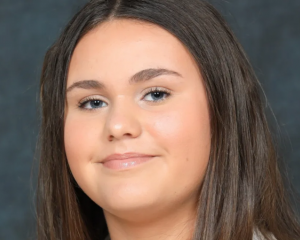
The Suicide Prevention Office will continue, but it may have no full-time staff - and it could face increased scrutiny to ensure it's doing its job.
Last month, the Public Service Association said a proposal to cut staff at the Ministry of Health meant the Suicide Prevention Office would close. In response, Mental Health Minister Matt Doocey said the office would not close.
A new plan involves staff from across the ministry contributing time from their existing roles on suicide prevention work. About a dozen staff would spend 25 per cent of their role on suicide prevention. There would not be anyone working full time for the office in the new structure.
Doocey said he'd been reassured by the Ministry of Health that the new structure would deliver "better outcomes."
"I'm making sure that the expectations are very clear, and I have sought assurance and been given that from the ministry, that the structure will deliver that," he told RNZ.
A stocktake of the Suicide Prevention Office's work by the Department of Prime Minister and Cabinet last year found there had been "mixed" results on the implementation of the Suicide Prevention Strategy and Action Plan. It concluded "more visible leadership" on suicide prevention was needed.
Doocey said he agreed with those findings.
"I've actually shared that concern around the leadership of the Suicide Prevention Office. I don't mean that as specific around anyone personally, I just think that the office, at times it was very unclear the role of the office and more importantly the expectations and what it was trying to achieve.
"Clearly, there were concerns with the previous structure…then that is no reason to continue with it."
Labour's mental health spokesperson Ingrid Leary questioned whether the Suicide Prevention Office was actually staying open if there would be no one working full time for it.
"How will a Suicide Prevention Office remain open when the director role is proposed to be disestablished? When those working part time on suicide will instead report to a group manager who leads other workstreams?"
Mental Health Foundation chief executive Shaun Robinson said the proposal was "risky".
"That is a risky approach. As the Minister was saying, it needs really strong leadership," he said.
"One of the concerns by making it just part of a number of peoples' roles is that it doesn't have the priority that it needs, and it doesn't have that very clear leadership and drive on the strategy that it needs and on the operational sort of actually making things happen on the ground."

However, the proposal would see the "equivalent full-time" staff dedicated to the work of the office increase from 5.5 to 6.5 FTEs. This would maintain the current suicide prevention functions and work programme while being organised differently, Shearer said. There was no response to a question about whether anyone would be working full time on the office.
"The Ministry of Health remains committed to ensuring there is strong and visible leadership of suicide prevention in any new organisational structure and has provided that assurance to the Minister for Mental Health."
Increased oversight
Doocey also suggested the office and the Suicide Prevention Action Plan could be subject to the scrutiny of the newly formed Mental Health and Wellbeing Commission.
People with lived experience or who had been bereaved by suicide had been calling for independent oversight of prevention work, he said.
The commission was established in 2021 to oversee the implementation of the recommendations from the 2018 He Ara Oranga Mental Health and Addiction Inquiry.
"There's a natural fit there with the new Mental Health and Wellbeing Commission providing that independent oversight to ensure that the Suicide Prevention Office is achieving what is expected," said Doocey.
The commission's role would be considered as part of a review of the action plan.
Leary worried the lack of leadership in suicide prevention would not be resolved by giving the commission greater oversight.
"It's not a bad thing to increase the focus on suicide but that doesn't resolve the critical question of who will do the cross agency coordinating which the Suicide Prevention Office currently does," she said.
"Currently, the way the proposal is for the restructure of the Suicide Prevention Office, it looks like that cross agency coordination will fall through the cracks."
Giving the commission greater oversight of suicide prevention work would be a "good move" but it would need more resources to do the job, Robinson said.
"Suicide Prevention does need an independent watchdog, it does need a degree of helpful critique, and that is really the role of the Mental Health and Wellbeing Commission, so we would support that.
"But it is a small organisation and its job is to monitor the implementation of the mental health and addiction review recommendations, which is a huge body of work and even now they have to prioritise which things they focus on.
"So if the minister really wants to focus on suicide prevention, the government is going to have to provide some resources to the commission in order to specifically allow it to focus on that important area."
The Mental Health and Wellbeing Commission said it had a legislative mandate to bring "system-level oversight to all parts of the mental health, addiction and wellbeing system, including suicide prevention".
"We are open to considering any particular role the minister may have in mind," a spokesperson said in a statement.













